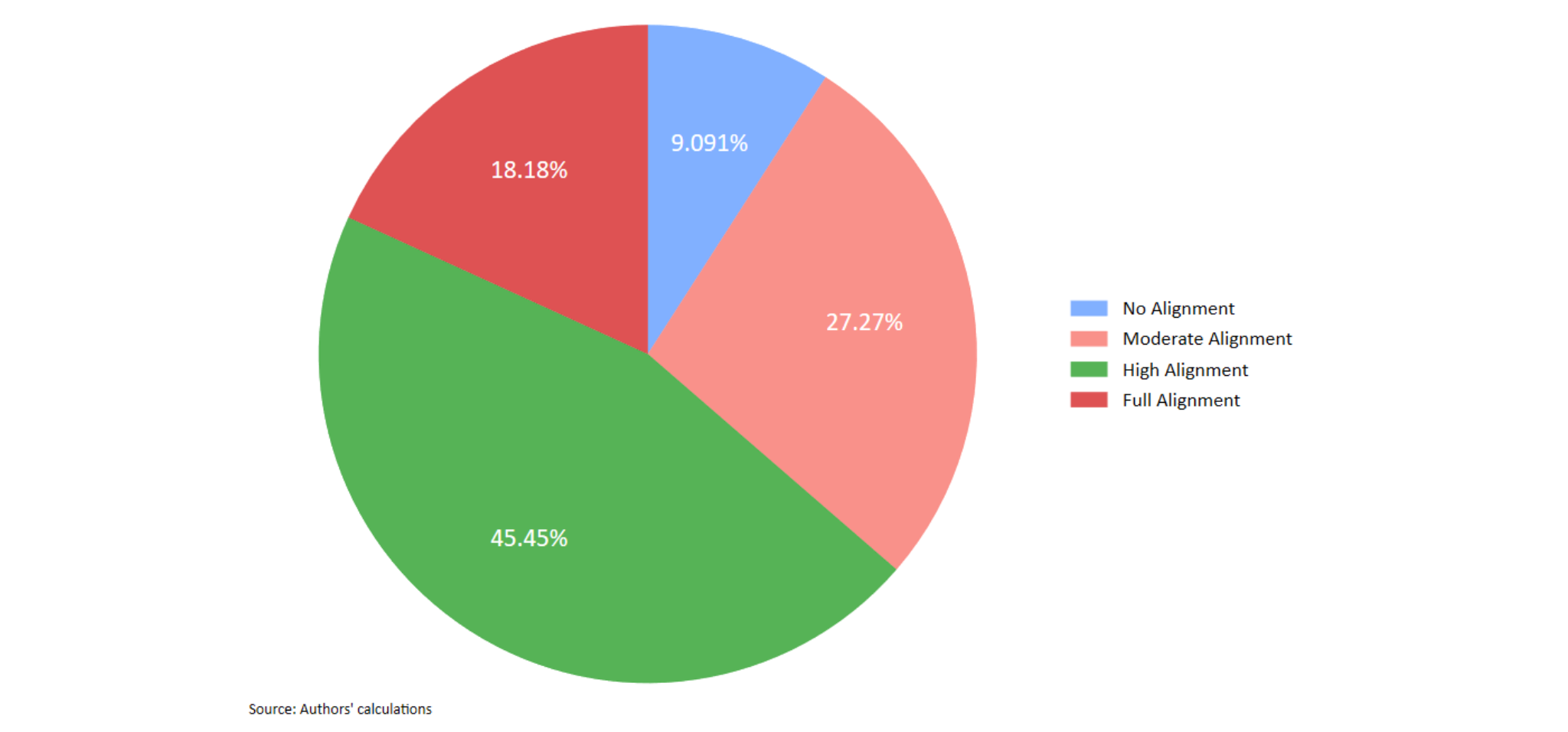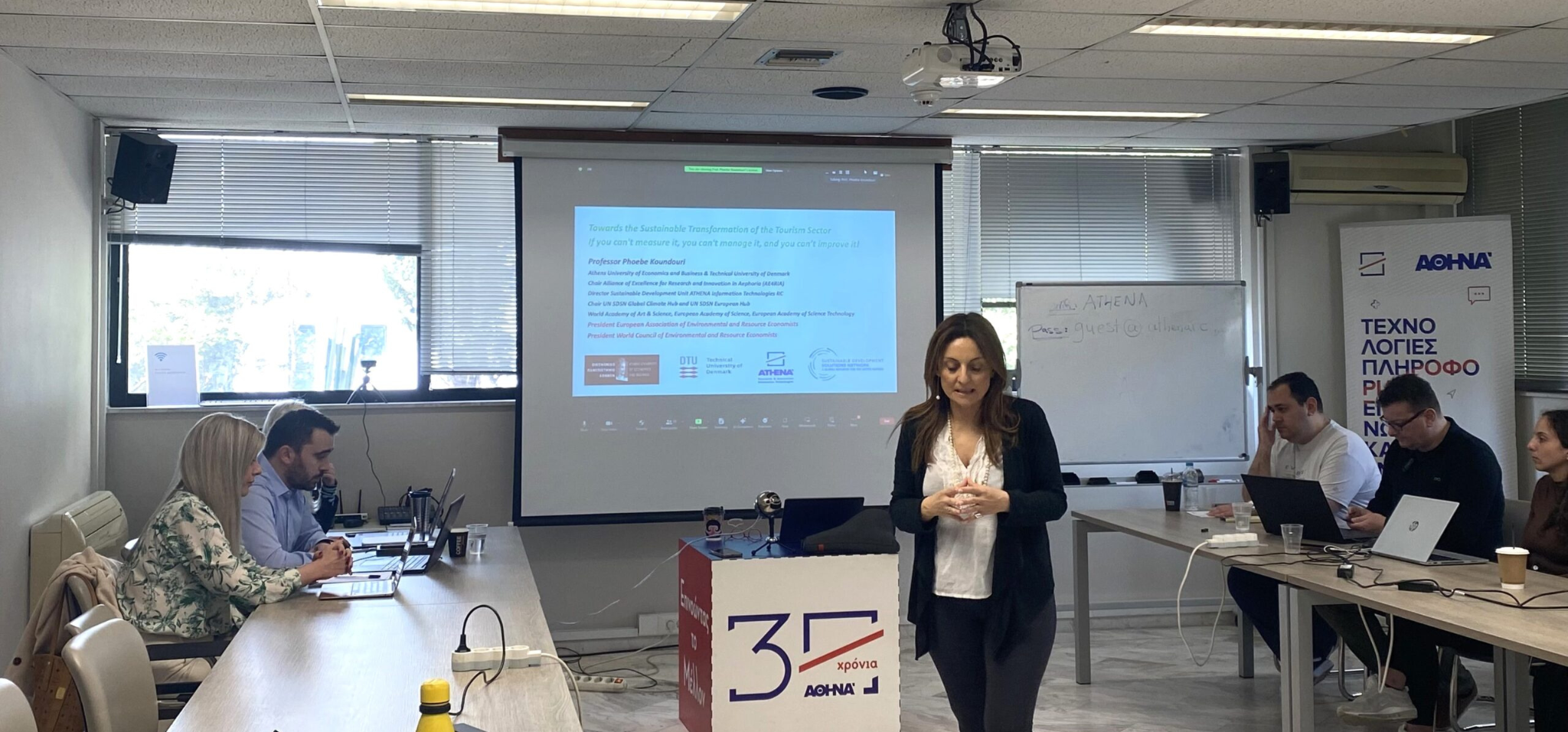
Author: Professor Dr. Phoebe Koundouri (AE4RIA, FABLE Greece), Konstantinos Dellis (AE4RIA, FABLE Greece).
On Thursday, March 28, 2024, the network of AE4RIA researchers, lead of FABLE Greece, organized an insightful workshop titled “Shifting to Mediterranean Diet and cross-sector implications for Greece.” Held as a hybrid event, with both in-person attendees at the ATHENA Research and Innovation Center in Athens, Greece, and virtual participants, the workshop aimed to delve into the significance of transitioning to a Mediterranean diet and its broader implications across various sectors within Greece.
Workshop overview:
The workshop served as an opportunity to present the work accomplished through the AE4RIA Network on sustainable food systems, emphasizing the importance of adopting the Mediterranean diet, and its alignment with the EU Green Deal and climate neutrality objectives for Greece.
The team introduced the Mediterranean diet scenario in the FABLE Calculator, and presented results compared to current trends. Notably, adopting this diet would significantly reduce agricultural emissions, especially through the abating demand effect on the livestock sector, thus contributing to the sector's gradual decarbonization. Combining healthy dietary patterns with structural reforms as the ones outlined in Greece’s National Commitments results in a substantial drop in emissions, as shown in FABLE calculations from the 2023 Scenathon. Adhering to these national commitments would reverse negative effects on agricultural production caused by a standalone shift to a Mediterranean diet, leading to a significant reduction in production costs in the agricultural sector.

Outcomes and recommendations:
The workshop facilitated a robust discussion on the challenges facing the Greek agricultural sector, particularly following the devastating extreme weather events of 2023, emphasizing the need for radical transformation. Experts from various domains, including doctors specialized in Mediterranean diet, dieticians, and agricultural researchers, provided valuable inputs on targeted policies to promote dietary shifts and streamline incentives at the national level.
Key outcomes included:
- The integration of a Mediterranean Diet in the National Health Strategy.
- Increasing awareness on the positive effects on human health and decarbonization targets.
- The need for streamlining incentives outlined in the Farm2Fork strategy at the national level.
- The options for scaling nascent practices supporting the social dissemination of healthy dietary patterns such as Community Gardens.
- Learning from international best practices in healthy diet promotion (OECD, 2022) following potent examples of Canada, Denmark and Finland.
- The need for a concomitant transformation of the Greek agricultural sector to incorporate green technologies and sustainable practices.
- The gradual phasing out of “traditional” cultivations such as cotton.
- The potential for an increase in pork meat production with the simultaneous reduction of beef production, and the benefits for both human health and the environment.
FABLE Results
Mediterranean diet
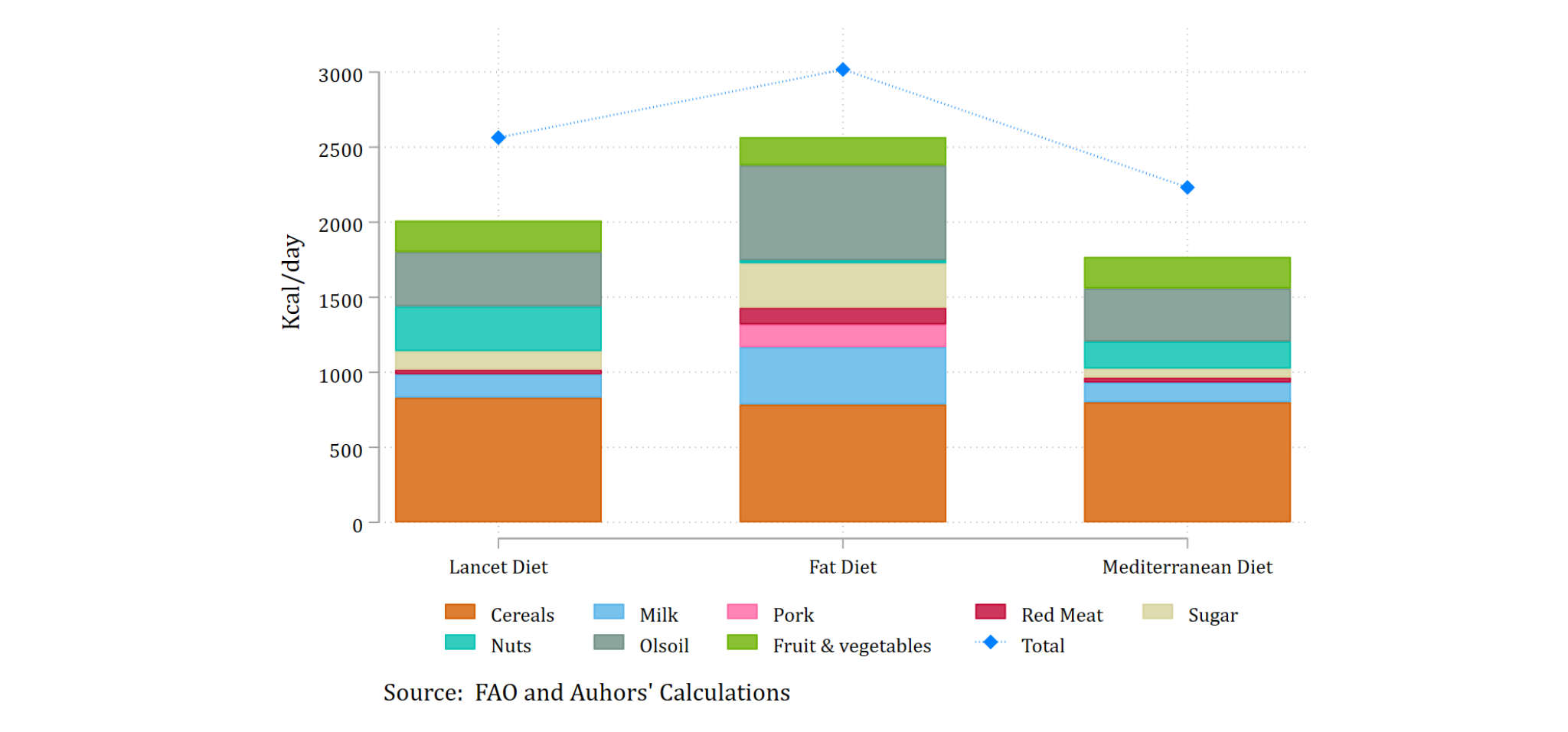
Agricultural emissions
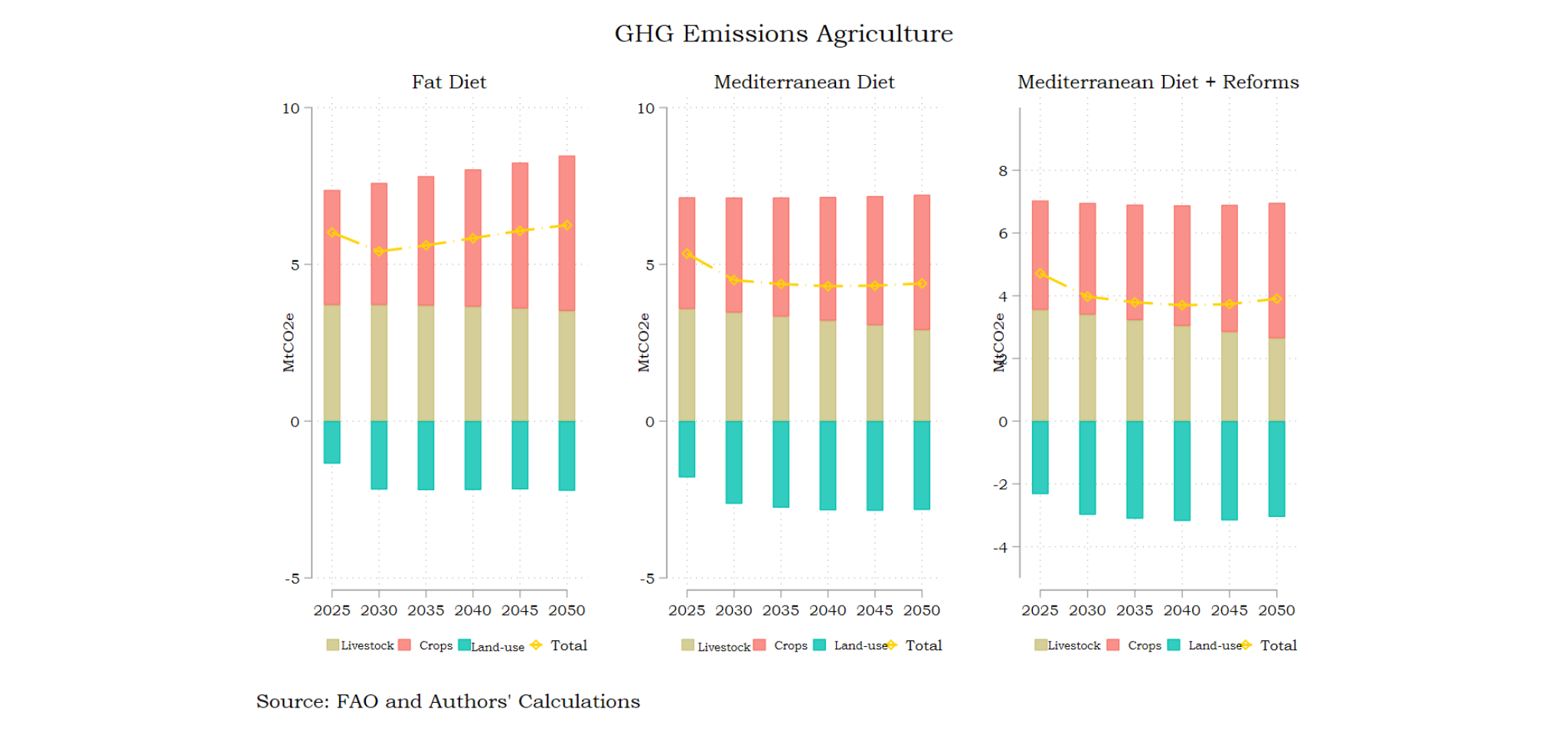
Agricultural production
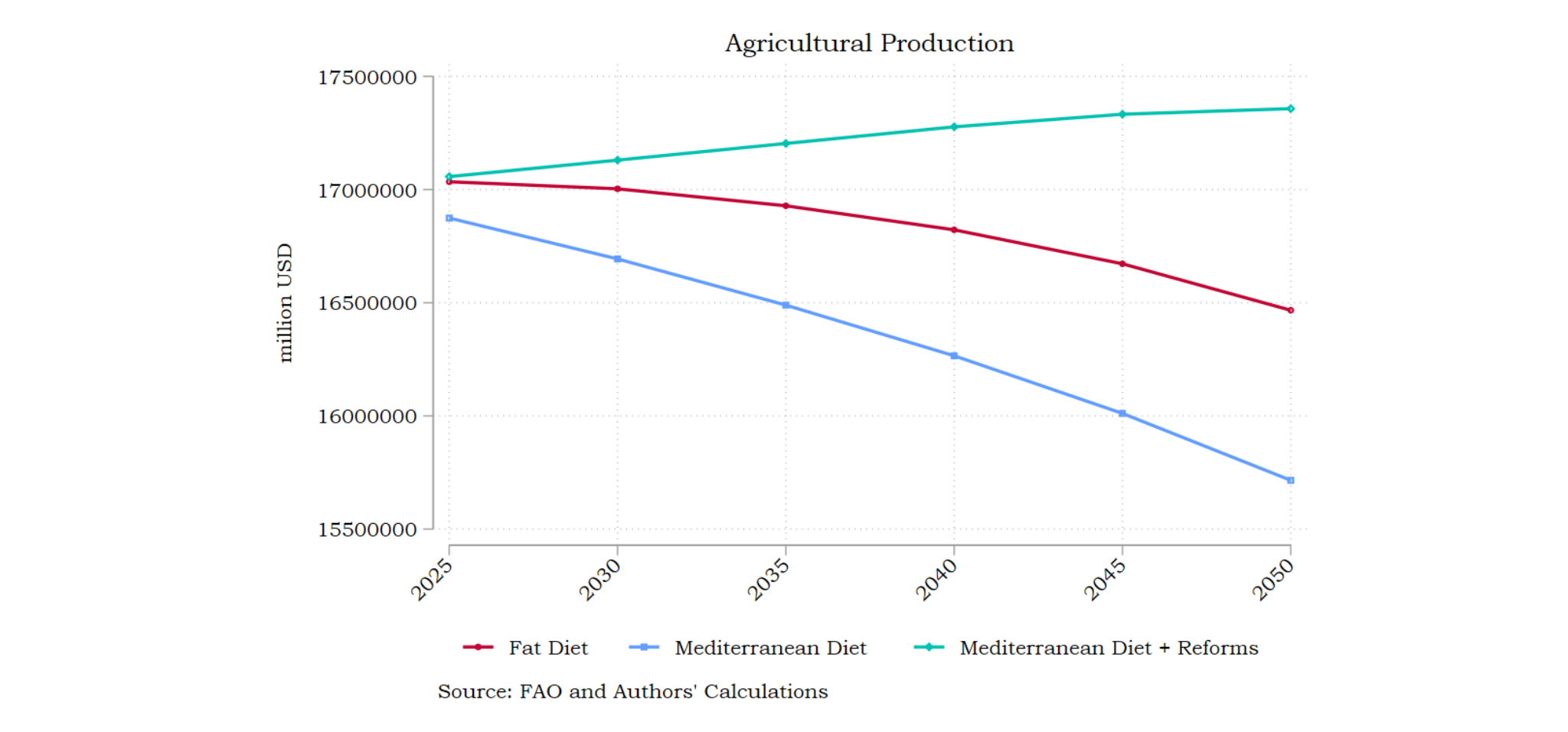
Questionnaire (ongoing)
Mediterranean Diet – Relevance to Climate Change Mitigation
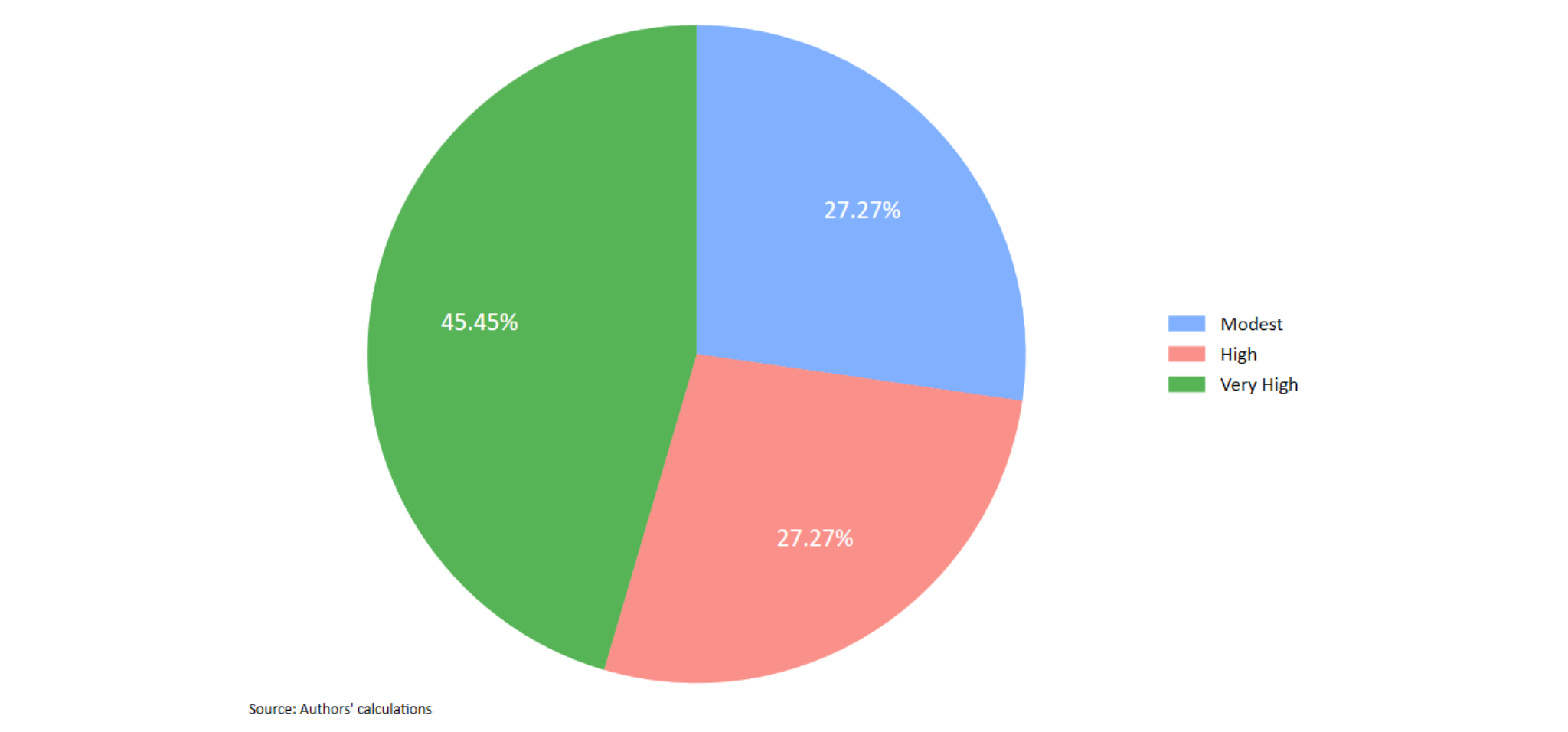
Alignment of current Greek policies to Mediterranean diet promotion
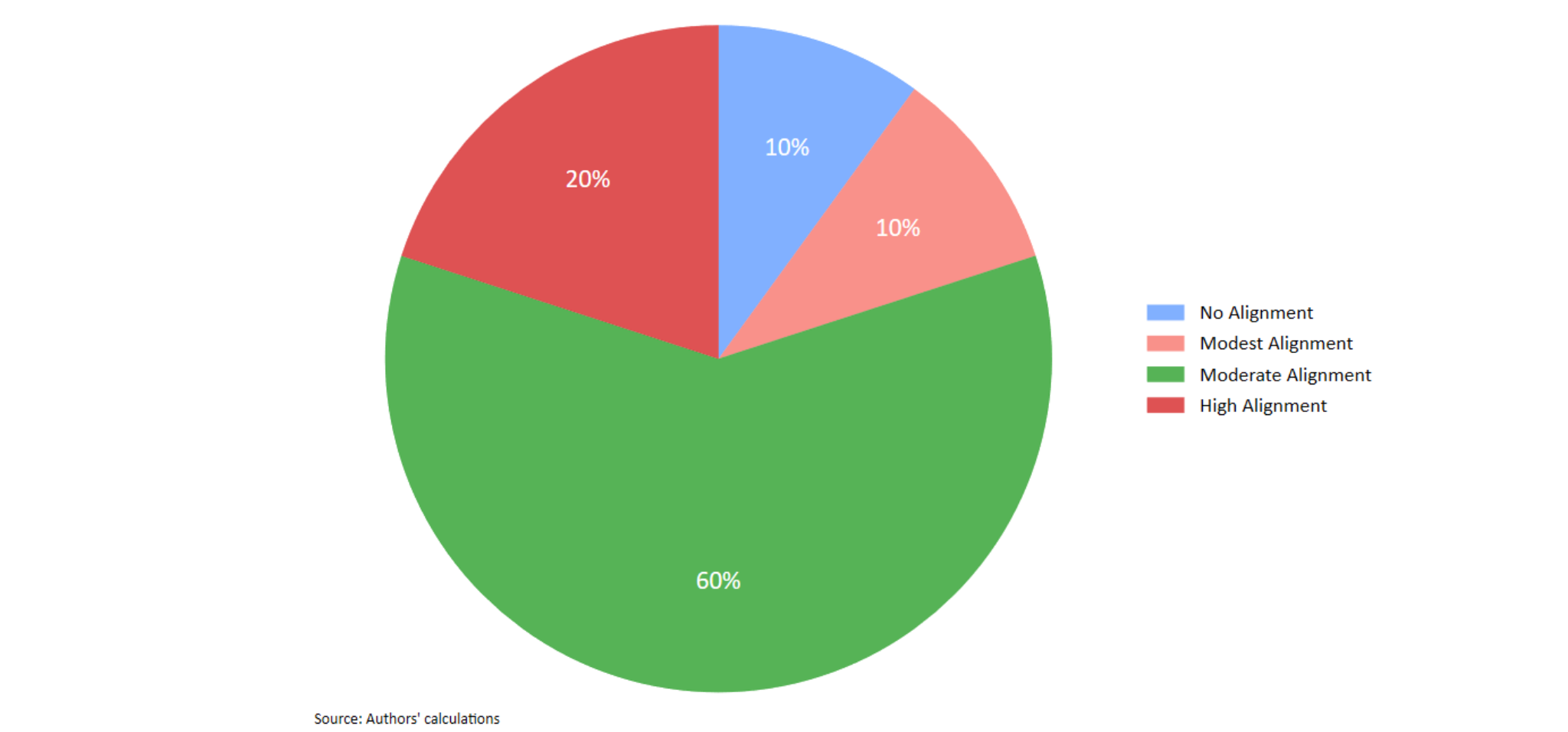
Alignment of EU Green Deal to Mediterranean diet promotion
